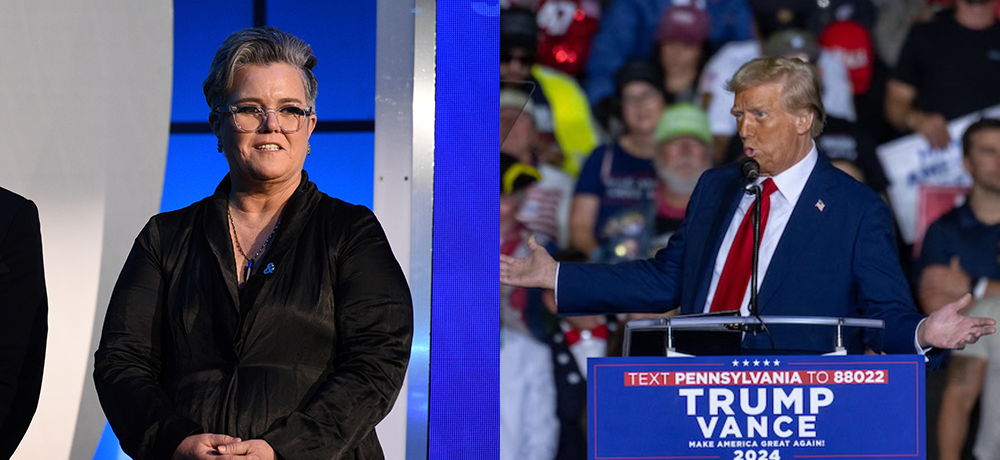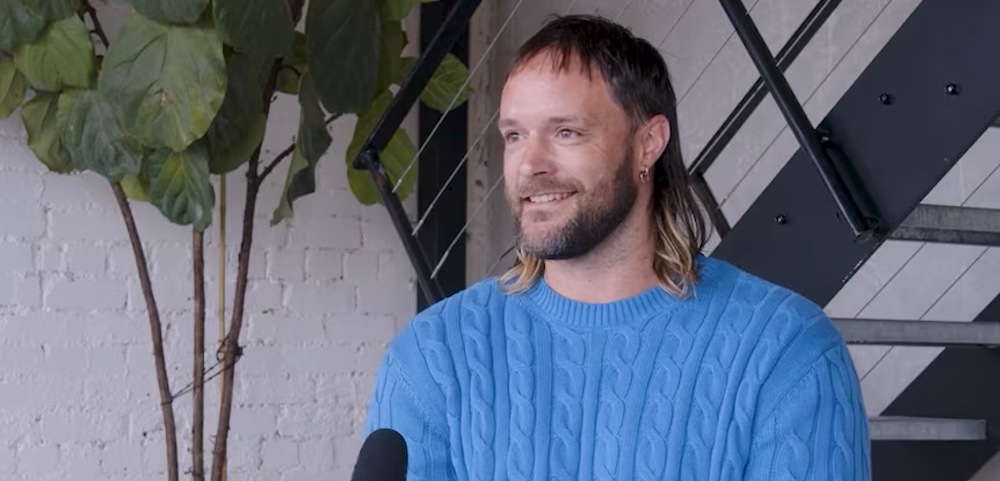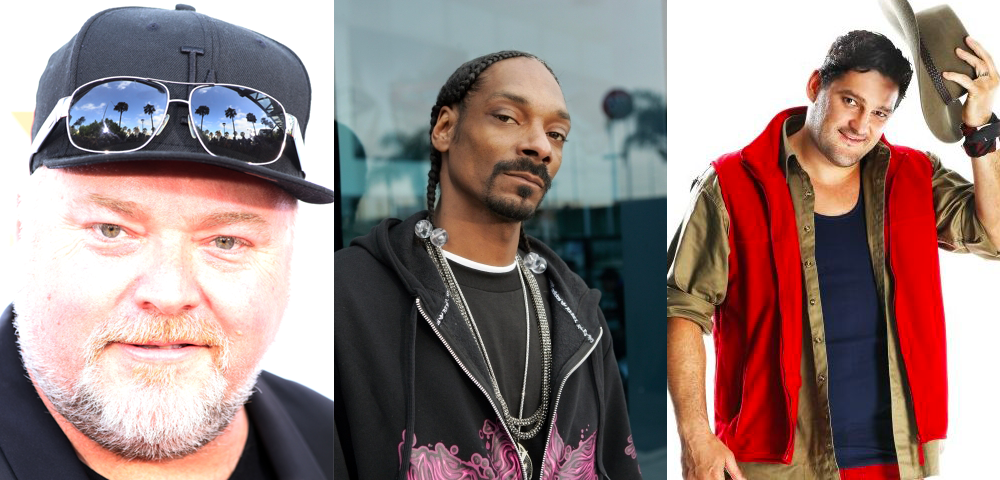
Here’s Why Donald Trump Threatened To Revoke US-Born Rosie O’Donnell’s Citizenship (And Could He?)

This week, President Donald Trump unleashed a new salvo in his long-running feud with comedian and activist Rosie O’Donnell — threatening to “give serious consideration” to revoking her US citizenship.
His comments, made via Truth Social, said:
“Because of the fact that Rosie O’Donnell is not in the best interests of our Great Country, I am giving serious consideration to taking away her Citizenship.”
It labelled O’Donnell a “threat to humanity” and suggested she remain in Ireland, where she now lives.
The post ignited alarm, sparking waves of outrage, doubt, and legal scrutiny across the U.S. and rainbow communities worldwide.
So, could Trump actually revoke the citizenship of a native-born US citizen?
Born in Commack, Long Island in 1962, Rosie O’Donnell has undeniable credentials as a natural-born American citizen, safeguarded by the 14th Amendment.
Constitutional scholars and legal experts were virtually unanimous: no president has the unchecked authority to strip the birthright citizenship of a native-born US citizen.
“The president has no authority to take away the citizenship of a native-born US citizen,” Amanda Frost, a law professor at the University of Virginia School of Law, told the Associated Press.
“In short, we are nation founded on the principle that the people choose the government; the government cannot choose the people.”
That stance reflects legal reality: citizenship can only be revoked by voluntary renunciation or through strict judicial processes — none of which are applicable in this situation.
Even progressive barbs from Trump — who has previously floated ending birthright citizenship and targeted naturalised figures like Elon Musk or Zohran Mamdani, the progressive, down-to-earth and genuinely delightful new folk hero of New York City who’s currently running for Mayor — carry no legal weight. Those cases differ fundamentally. Musk and Mamdani are not native-born, and denaturalisation applies only under narrow circumstances like fraud.
In short, experts call Trump’s threat “baseless” and legally “unfeasible,” viewing it as emblematic of authoritarian tactics rather than actual policy.
The long-standing feud between Donald Trump and Rosie O’Donnell
The animosity between Trump and O’Donnell is no flash in the pan — it’s been brewing for nearly two decades.
It started in 2006, when O’Donnell was co-hosting The View and harshly criticised Trump’s business ethics and his direction of the Miss USA pageant, calling him a “snake-oil salesman.”
Trump hit back with threats of legal action and searing attacks on O’Donnell in the media.
Fast forward to 2016, and the feud hit new heights during the Republican primary debates. Trump declared that no other woman deserving of insult had been more targeted than O’Donnell — something he bragged about amid laughter from the audience.
The personal war persisted through Trump’s first presidency and after. Through his second campaign for presidency, O’Donnell continued as a vocal advocate against Trump, and he continued to use her as a cultural punching bag, framing her as a representative of the “Hollywood elite” who opposed to his policies because they did not understand the working class of America like he supposedly did.
What triggered Trump’s threat to Rosie O’Donnell
The latest clash was triggered by O’Donnell’s TikTok post early in July, where she blamed the Trump administration’s budget cuts to weather warning systems for contributing to deadly flash floods in Texas. She argued that the disaster outcomes were directly tied to weakened federal forecasting. It was this that caused Trump to take to Truth Social to denounce her as a “threat to humanity” and threaten to strip her citizenship.
O’Donnell’s prominence as a queer advocate always mades her an easy symbol for Trump go cut down to size, which was an easy way to score points with strongly anti-LGBTQIA+ fanbase.
But his new threat on O’Donnell’s citizenship is emblematic of a step up in his attacks, and a sets a dangerous precedent: inviting executive power to weaponise identity and rights under political pretext.
Rosie O’Donnell fires back
O’Donnell didn’t stay silent. Within hours, she made a series of posts on Instagram and TikTok, calling Trump a “dangerous soulless old man with dementia”. Alongside a picture of Trump with child sex offender Jeffrey Epstein, O’Donnell wrote, “Hey donald – you’re rattled again? 18 years later and I still live rent-free in that collapsing brain of yours.”
“You want to revoke my citizenship?” she wrote in one post’s caption. “Go ahead and try. I’m not yours to silence. I never was.”
View this post on Instagram
Media figures across the spectrum have weighed in. Ana Navarro, co-host of The View, criticised Trump’s rhetoric as “authoritarian” and made the point that America is “not North Korea,” directly rebuking the idea that revoking citizenship should ever be on the table.
Meanwhile, Ellen DeGeneres expressed solidarity with O’Donnell, who posted screenshots of O’Donnell’s response with the caption “Good for you @rosie” on Instagram.
So what exactly happens next?
For now, there’s no legal path for Trump to revoke O’Donnell’s citizenship. Without voluntary renunciation or judicial proceedings—none of which apply—this threat remains symbolic, a message of intimidation rather than policy.
Politically, it’s likely Trump is leveraging polarisation: firing up his base, distracting from investigations or policy failures, and projecting power through rhetoric.
Why we’re covering Trump’s citizenship jab
If Trump can’t actually do what he is threatening, there will be plenty who will ask why news outlets are even bothering to cover it. But it does matter, because this isn’t just celebrity squabble — it’s a bellwether for civil liberties and basic democratic principles.
The casual threat of citizenship revocation — even if hollow — challenges the foundational rights many take for granted. For LGBTQIA+ communities, or other marginalised groups such as immigrants, refugees and asylum seekers, or even people fighting for supposed ‘left-wing issues’ like reproductive rights and abortion access, it rings alarm bell warnings: if one can be targeted and threatened simply for expressing an opinion the heads of government don’t agree with, it could happen to to anyone.
O’Donnell represents more than dissidence; she embodies a queer, feminist voice rooted in defiance, resistance, and justice.
That’s why this news matters—not only for what it says about Trump, but about how America defines dissent, and claims its constitutional promises for all, not just some.
In the end, Trump’s threat may be the theatrics of a drama queen who probably shouldn’t have the nuclear codes — but the response it provokes is real. For Rosie O’Donnell and those like her, this is a fight over who belongs in, and who is genuinely welcome in, America — and what democracy genuinely looks like when the most powerful man in the world Doesn’t Like What You Say.









